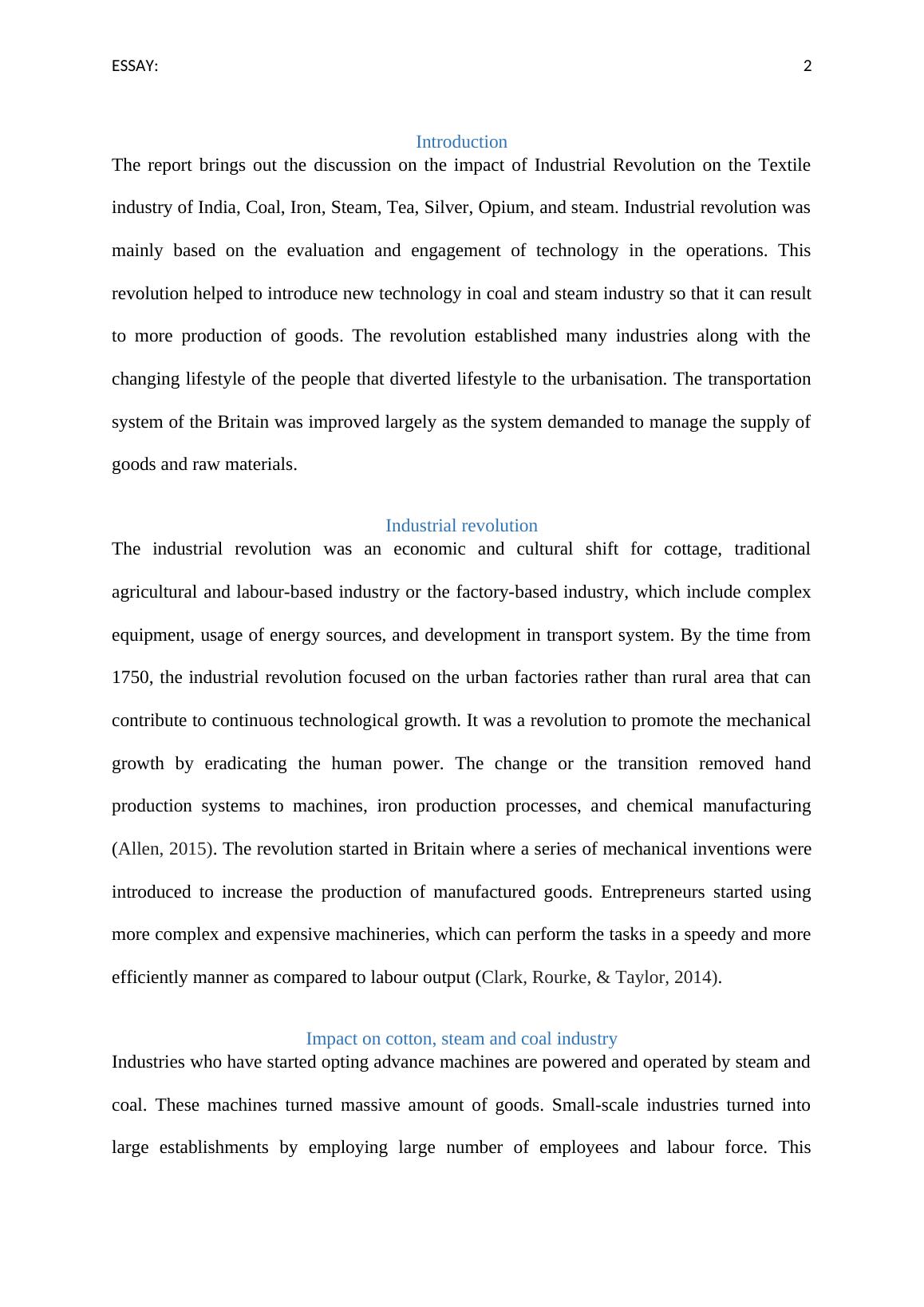Impact of Industrial Revolution on Textile, Coal, Iron, Steam, Tea, Silver, and Opium Industry
Added on 2023-06-03
8 Pages1750 Words135 Views
End of preview
Want to access all the pages? Upload your documents or become a member.
HIS122 European history Assignment
|3
|1021
|81
Industrial Revolution in Manchester: Reasons and Impacts
|4
|616
|321
Energy Geography - Industrial Revolution
|24
|7229
|16
Changing Nature of Working Practices in the UK
|8
|2404
|251
The Social and Economic Changes of Birmingham during the Industrial Revolution
|19
|5790
|484
The Impact of the Industrial Revolution on Society
|3
|508
|97



